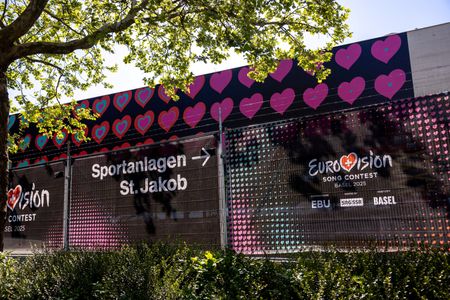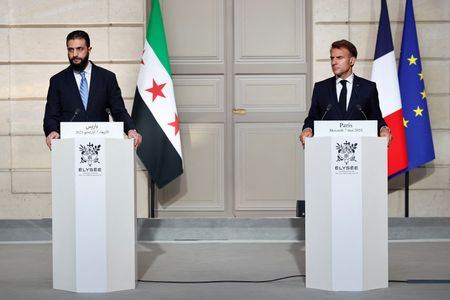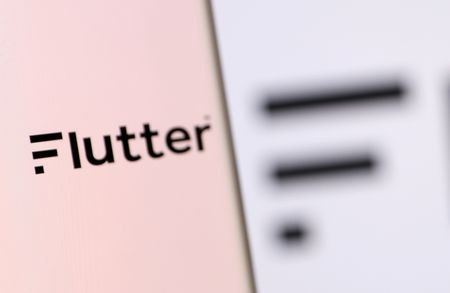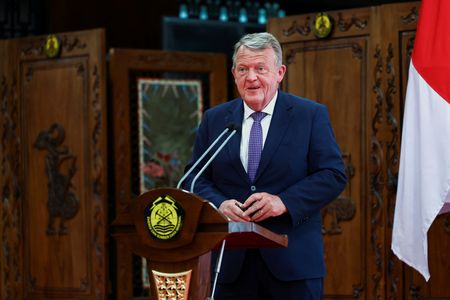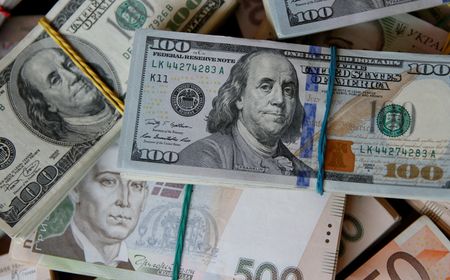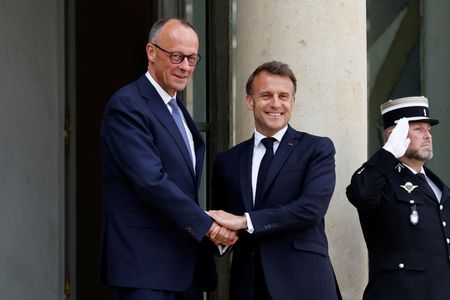By John Revill
ZURICH (Reuters) – Switzerland will host the Eurovision Song Contest for the first time since 1989 next week, amid familiar political criticism over LGBTQ+ rights and the participation of Israel.
The European Broadcasting Union (EBU) hopes its theme of “United by Music” will help keep the focus in Basel on the performers and their songs at the world’s biggest entertainment show by viewership.
But controversy is again swirling around what critics see as the contest’s growing politicisation and ideological agenda.
One row is over the inclusion of Israel, to be represented by Yuval Raphael, a survivor of the October 7, 2023 Hamas-led attack that killed 1,200 people.
Israel’s military campaign in Gaza has since killed more than 50,000 Palestinians, according to local health officials, prompting officials in Spain, Slovenia, and Iceland to question whether Israel should be allowed to take part.
Palestinian organizations and human rights groups in Switzerland have also opposed Israel’s participation, accusing the EBU of double standards.
“Russia was excluded from Eurovision after its invasion of Ukraine but Israel is still allowed despite committing genocide in Gaza,” said Geri Mueller, president of the Association Swiss Palestine. Israel has repeatedly rejected such accusations.
The EBU said Israel was allowed to compete because the country was represented by KAN, its public services broadcaster, and not its government.
KAN did not respond to a request for comment.
Eurovision director Martin Green said the contest could promote a connection despite political turmoil and be a “momentary space of joy and escapism.”
“My hope this year is that Eurovision does what it’s done for the past 69 years, which is show that music can bring us together,” Green told Reuters.
“I know that sounds maybe a little bit twee, but that is the purpose of the contest.”
Eurovision, previously mocked for its sometime tacky songs and outlandish performers, has enjoyed a renaissance in recent years, partly due to the strong support of gay fans.
It is the world’s biggest entertainment event, attracting 170 million viewers last year, along with voters from more than 150 countries.
This year’s event has also ignited debate in Switzerland, where a campaign by the conservative Federal Democratic Union (EDU) tried unsuccessfully to block public funding.
The EDU took issue with what it called the contest’s promotion of a “woke agenda,” said Samuel Kullmann, a member of the Bern cantonal parliament.
“It has become like a freak show,” he told Reuters, accusing Eurovision of pushing transgender and queer identity narratives at the expense of traditional values.
Nemo, a non-binary Swiss singer, won the 2024 contest with The Code, a track chronicling their journey of gender self-discovery.
Anti-Semitism was also cited by the EDU as a concern, referencing anti-Israel protests during last year’s contest in Malmo, Sweden.
Security this year has been stepped up, with 1,300 police officers on duty, and specialists drafted in from the military and cyber security experts.
New flag guidelines restrict the stage and green room to one national flag, effectively banning the rainbow Pride flag for artists, although LGBTQ+ and regional flags will be permitted in public sections for performers and fans.
After reports that several ticketholders had non-binary pride flags confiscated last year, EBU director Green said the restriction was designed to create clarity and balance
“Eurovision needs no flag to demonstrate its alliance and celebration of the LGBTQ+ community,” he said. “You only have to see the show, see the people that are taking part, hear what they’re singing about.”
Pink Cross, a Swiss gay and bisexual rights group, was nevertheless disappointed by the decision.
“Eurovision is a celebration of solidarity and tolerance and has a long history of supporting LGBTQ+ rights,” said secretary general Roman Heggli. “The flag ban is a slap in the face.”
(This story has been corrected to remove a reference to officials in Finland in paragraph 5 and to amend the number of countries Eurovision received votes from in 2024 to ‘more than 150,’ not 163, in paragraph 14)
(Reporting by John Revill; Editing by Hugh Lawson)

